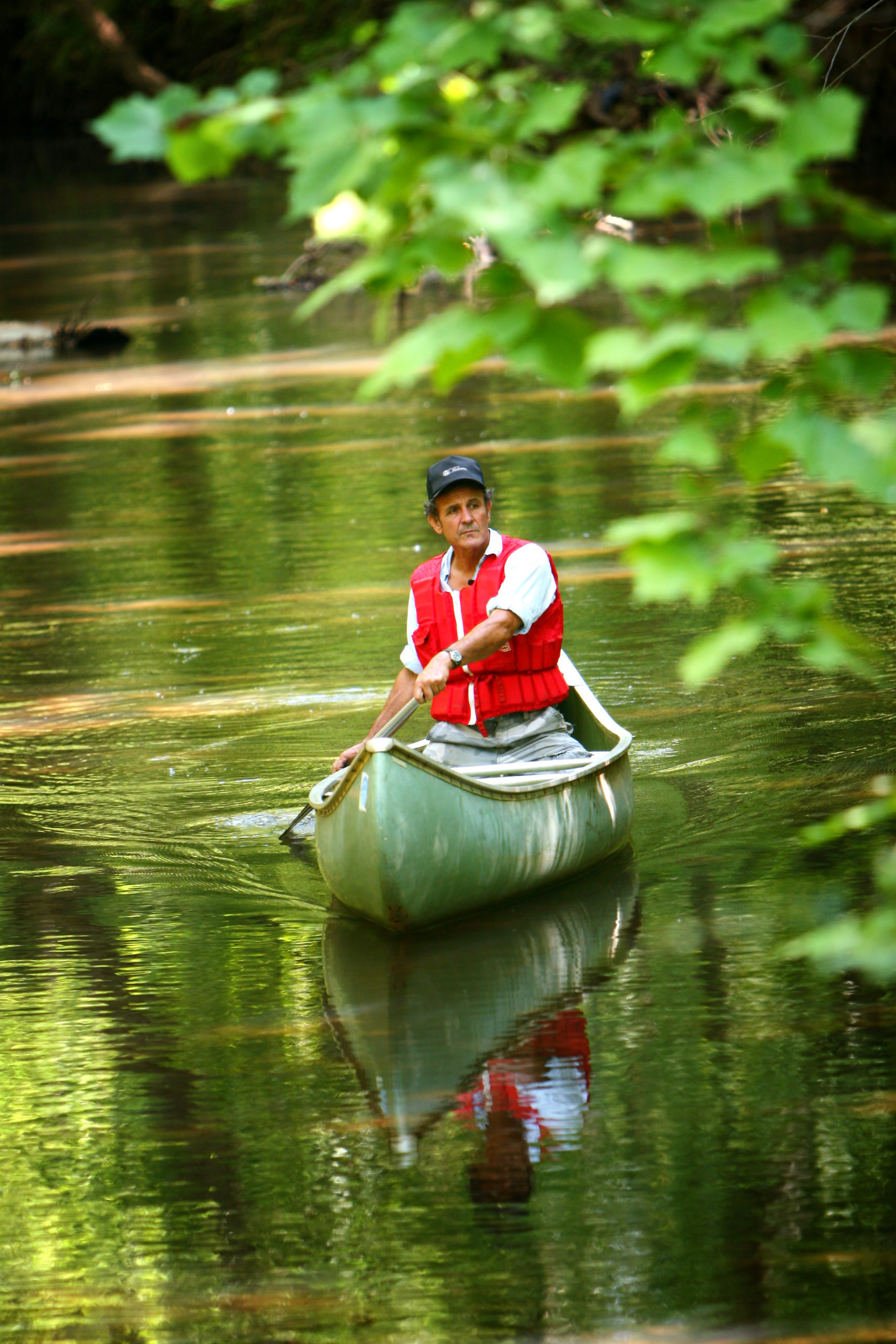 Dr. Doug Phillips is arguably the most passionate and vocal conservationist in Alabama. He’s an educator and an outdoorsman, and he’s become a familiar face as the host of “Discovering Alabama” for more than 30 years. He didn’t plan to be the face of the program, which is broadcast by Alabama Public Television and has won three Emmy Awards. He originally was going to be a consultant, but he is in his element in the backwoods of Alabama, and relishes the opportunity to educate viewers about the state’s natural heritage and biodiversity. – Allison Law
Dr. Doug Phillips is arguably the most passionate and vocal conservationist in Alabama. He’s an educator and an outdoorsman, and he’s become a familiar face as the host of “Discovering Alabama” for more than 30 years. He didn’t plan to be the face of the program, which is broadcast by Alabama Public Television and has won three Emmy Awards. He originally was going to be a consultant, but he is in his element in the backwoods of Alabama, and relishes the opportunity to educate viewers about the state’s natural heritage and biodiversity. – Allison Law
What got you interested in conservation?
The show we did on the Locust Fork River is a journey back to my childhood home, which was miles down a dirt road. It was just miles of woods and streams and countryside. I roamed it all and claimed it all and bonded with it all.
I went off to West Point, and that was a culture shock. From a country boy to New York. I was desperate to get back to Alabama. I was fortunate to get back and get into graduate school and get a Ph.D. in educational research, where I could really start making a difference in educating about Alabama’s natural wonders and environmental protection. That was still way back when, when the politics was not on the environmentalist’s side.
You didn’t start out with the TV show?
I started out developing school programs. We ran extended teacher environmental camps and worked with schools to adjust their curricula to get more environmental learning in there. I was literally taking teachers down the rivers, up the mountains and into the wilderness.
One of those teachers said to me, as I recall, “this is so inspiring. Now we see how to make connections between our math and our science with the real world, in an exciting way. But you’re going to be leading little groups of teachers forever. You need to start a TV show.”
If I heard it once, I heard it at least half a dozen times, when I would hawk the idea, “who would be interested in that?” It wasn’t a hunting or fishing show.
(But a) little film crew went out with me, and we shot a bunch of (footage) and put it in the pilot. Alabamians saw it and said, “Wow, what a wonderful state.”
Talk more about the show and its relationship to education.
We will soon be in our 35th year, and have now joined among the longest-running TV series in TV history. That’s an Alabama TV show we’re talking about. We’ve limped along – you don’t have a lot of money sometimes. But at this point, we have almost 100 shows on every aspect of natural diversity in Alabama.
All of those shows are with teacher guides I write to go with them, and they are correlated to support the academic requirements in this state, in science, math, and we try to cover the arts. Certainly environmental science. Geography, history. I’ve been in this business for a while, and I can tell you, we’re the only show that does it this way.
Has the show has given you a platform to do public speaking?
Yes. I welcome the chance to bring thoughtfulness and substance to this whole topic of our natural heritage and our environment and how we can improve education, because we’re in trouble.
People ask me, what’s the biggest environmental threat in Alabama? They think I’m going to say, all that litter. I have to dismiss that. Litter can be picked up.
The biggest long-term threat is loss of our rural countryside. Because when that’s gone, there goes your watershed protection, your biodiversity.
Look at Atlanta, look at Houston. I ask my audiences, if that kind of growth and change comes here, what’s this state going to be for your children and grandchildren?
Some of my political enemies, although they’re friendly enemies, they disagree with me. “All the growth we can get is what we need.” They have their reasons, and they’re not bad reasons. But thinking long-term, where’s that going to take us, people?
What should we do? Get serious about long-term planning, and connect education to the land.
Are you hopeful for the future of Alabama’s environment and its natural heritage?
Depends on what side of the bed I get up on. (laughs) There’s a lot of wonderful new environmental awareness and leadership going on in Alabama today. But I realize that the culture is becoming cognitively disconnected from the land. When you combine that with this profit-driven need for growth, it’s just gotten out of hand in so many places.
Alabama has got to quit being ashamed of ruralness. I’ve seen this in some people, who are sort of subconsciously equating our ruralness with ugliness.
I tell people, do not equate backwoods with backwards. Ruralness and backwoods is putting us ahead of other regions that have lost all of this.




